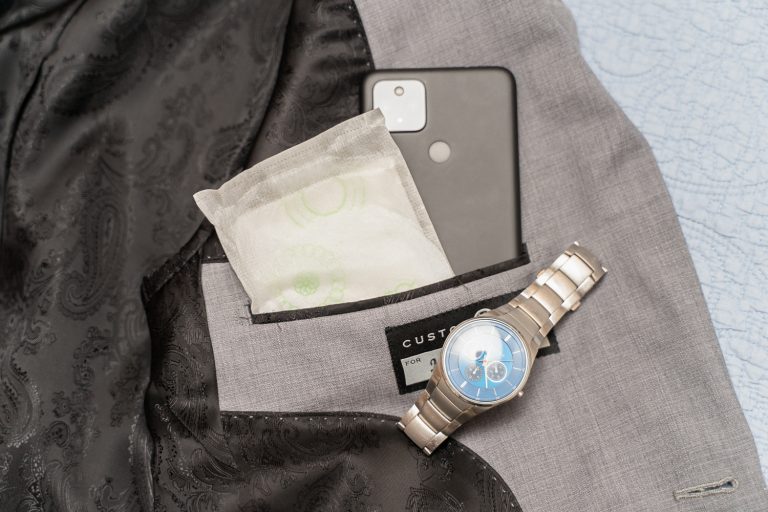Walking down an aisle in the grocery store, I look up and see a sign letting me know I am in the “feminine hygiene” section. Anger begins to creep in. It infuriates me that we still use the term feminine hygiene and that this term was ever used to talk about menstruation. Both these words are problematic.
Feminine does not come close to describing all the people who menstruate. People who menstruate are trans, cis, Two-Spirit, non-binary, gender queer, agender, third gender, gender fluid, women and men—and they may or may not consider themselves feminine.
Hygiene implies that menstruation is dirty and people who menstruate must be cleaned. Menstruation is a natural bodily process and without it none of us would be alive. Attending to menstruation and all it entails is health care. Health care that is necessary and should be accessible and free.
People who menstruate often have complicated relationships with their bodies and the process of menstruation. Whether or not your body menstruates is not a choice you get to make. This realization can be annoying, frustrating or devastating.
Menstruation can be difficult and stressful, and having to purchase period products can add to this stress. Menstrual care products such as tampons, pads, cups and period underwear are not cheap and must be purchased on a regular basis.
For some people the added expense means deciding on whether to eat or buy period products. Although period poverty may seem like a problem for other people in faraway parts of the world, it is also a reality for people in your community and your neighbourhood.
You can help by donating menstrual care products to local food banks, as they never have enough, but it is also necessary to support campaigns, initiatives and organizations that promote menstrual equity. Menstrual equity that is inclusive of trans and non-binary folks, as transphobia often prevents them from making the income they are qualified to make, an income that would allow stress-free buying of period products.
We expect public washrooms to have toilet paper, running water, paper towels and soap. These are all necessary for our health. Period products are also necessary for our health and they should be available in every washroom, in every stall for free, just like toilet paper. There should also be disposal units in every stall for used period products, no matter what the sign on the washroom door says.
All stalls should have proper doors and walls that reach ceiling to floor, without cracks you can peek through—we all like our privacy while on the toilet. This would reduce the sound of using period products with noisy wrappers—and they are noisy, especially when you are not feeling safe in a washroom and a tampon wrapper could stand between you being harmed and not being harmed. For this reason many people use products for much longer than recommended, endangering their health.
These barriers do not need to exist. This does not need to be so complex. Harm or health should not be something anyone has to choose between. We all deserve privacy, safety and period products while on the toilet.

